I never really wanted to be a comedian, I wanted to be an actor who could do comedy well, and I wanted to improve my acting, and auditioning skills. That was my mindset going into stand up back in the mid 80’s.
Doing stand up can lead to other good paying jobs, but more importantly, stand up comedy helps us get used to performing in front of people, as well as helping with auditioning. We need good comic timing, good improvisation skills, not to mention getting over any stage fright issues as quickly as possible, so we can advance in our career.
I don’t think you really do ever get completely over stage fright. In fact, if you do, I think you lose your performance edge. Even after many years, I would be feeling it every time, moments before going out on live TV, or on stage. I learned there is a razor thin line between fear, and excitement. All I had to do was tip it the slightest amount towards excitement, and the fear was gone. When I found myself in that situation, I would say to myself, “I am excited to go out there and do this!” I learned to channel my fear into excitement.
Just to fast forward here for a bit, when I got out to LA, I used to love hanging out on the patio at “The Bean”. (coffeebean.com) It’s a popular small chain of café’s that many actors and creative types go to and network. After an audition, a gig, or out making the rounds, I would usually stop in there to chill out.
Anyway, one day I was sitting there with a few other actors sipping some “tender coffee”. (That’s coffee with a little too much steamed milk and other flavors added in to it.) Anyway, the subject of doing stand up comedy came up. One of the actors sitting with me commented, “I tried doing it once, and it was the most terrifying experience I’ve ever had in show business”. “I never felt so all alone, and I will never ever do it again!” I shared the story below about my first stand up comedy experience that you are about to read. After hearing about that, he realized that his first time wasn’t nearly as bad as it could have been. We shared a good laugh over the whole thing. It is kind of funny now, but not so much at the time!
I explained how awful it was, but I managed to shake it off, got back up on my horse, and kept doing it. That, yes, attempting stand up is terrifying, but the more I did it, the more comfortable I was getting performing in front of live audiences. When I got up the second time it got a little bit easier, and as I kept trying it, it did get easier, and I did get better and better, more confident with it. But mostly it was about overcoming my own fears, and how much it helped me to improve my auditioning skills. That first time is always the worst, go into it expecting to fall flat, because that’s what probably will happen.
He rented a few instructional DVD’s and got back up there. A few months later, I saw him perform at an open mic night, and he did quite well. He came over and sat with me, and thanked my profusely for encouraging him to get back out there and to continue doing it. He mentioned that he had booked a very nice job, and that the stand up helped him to nail an improv commercial.
Having a set list of jokes can help you, kind of like how a band will have a set list of songs they are going to play. It helps you to remember where you are in your material if you get lost. When you are new to this, sometimes we can just go blank and forget all our material. The unexpected things do happen, it throws you off, and this is good practice for you in the world of real auditions.
Pulling a set list out of your back pocket is considered kind of tacky, and it’s a sign of a hack by most comics. But having one when you are getting started out is a good idea, to help keep you on track. I got to the point where I didn’t need it, but having it in my back pocket, just in case, built my confidence. We aren’t there to impress all the other comics anyway. We are there to improve at it, most of them know this, and have probably done it themselves at one time or another. Later on, you will find that you don’t need that set list anymore.
For most of us, the hardest part of acting, is auditioning well and getting hired. Stand up probably helped me to audition the most. Even though I had no real desire to be a stand up comic, I knew that it would teach me to improvise better, and help me with my auditioning skills. For me, the actual acting part of a job was pretty easy. I would just play myself most of the time, and imagine I was that character, in whatever the situation was. Having a good imagination and plenty of life experiences to draw from is a big part of this.
Many of the stand up comedy clubs now offer courses in learning how to be a stand up comic, so you might check into that also. These days, you can easily find DVD’s on how to be a stand up comic pretty inexpensively. Maybe look at one or two of those first.
Stand up has become so popular over the years, because the club owners only need a microphone, a sound system, some chairs, and that’s about all it takes. It’s a whole lot cheaper than hiring a band is. So comedy clubs are popping up everywhere now. Most of them have an open microphone or “mic” night. Many have a small cover charge or a 2 drink minimum now. That’s probably my fault, as you will read here in a few moments.
Consider trying your hand at stand up comedy. For me, it was the best auditioning training, as well as free acting lessons. That was why I first got into it in the first place. I didn’t want the life of traveling around the country as a stand up comic. My passion was acting. I couldn’t afford the money to take acting lessons, and I knew I would need to develop good comic timing, and be fast thinking on my feet to audition well. It really strengthened my improvisation skills, and helped me to deal with that unpredictability factor.
Of course sometimes you get the hecklers, curve balls, the unexpected, that type of thing happens. It’s all good training for you as an actor. You also learn how to write comedy. You don’t have much choice unless you are Milton Berle or something. That’s why I tried my hand at it. It was free training in the most brutal of ways. Figure it like this…if you can cope with a room full of other hostile comics, then when you go on an audition with a room full of people in there, it seems like nothing compared to that.
I wasn’t good speaking in front of people. I didn’t even like reading a report out loud in high school, so I knew I need to work on this.
I bumbled my way into it all right. I was cocky, and I figured I could just get up there and slay the audience with no real preparation. I wrote up a bunch of what I thought was very funny material, and then hit up the local open mic night all excited to wow the crowd. When my turn came up, I went up there and at first everyone was laughing at me. It was a great start. My first joke was hysterical, and I was on a roll…for about 30 seconds. Every single thing after that bombed badly. It was awful. Not a single laugh, everything fell flat. The silence was deafening.
The five minutes I was stuck up there alone seemed like it went on forever. Near the end of my time, people were saying things like, “Get out of there!” “You suck!” It was pretty ugly. I had an egg in my hand and accidentally dropped it on the stage carpet. I don’t know what the heck I was thinking. Worst of all, I really was doing my very best up there.
Like a bonehead, I had invited family members, and most of my friends, to come see my performance. My parents had passed away at that time, but I did have some cousins, and relatives. Talk about being humiliated. Even my family members split half way during my act. They were like, “We don’t know this guy!” I got stuck paying the tab for them, and I got thoroughly bitched out by the management afterwards. This was bad.
My very best friend named Tom was there, and he was a little bit too buzzed. He was a pretty big guy in stature, and he felt so bad for me, that he took it out on the comedy club john. He went into the bathroom, and completely destroyed it. I mean he knocked the hand dryers off the walls, he smashed up a urinal, broke the toilet seats, and tore that place to pieces. (He was able to dash out the front door before anyone caught him.) I had no idea that this was even going on until later on in the evening. He tore that club up for me, because of my hurt up there. Talk about a display of friendship.
The cops showed up of course, and when I saw what he did I was like, “Hey I don’t know who that guy was.” “He must be somebody with a good sense of humor.” That was probably the best line I had of the night. I never shared this story with anyone except my later to be wife. She stuck with me even after that. There’s true love for you. I knew I had found the right woman for me. A few years later, I asked her to marry me, and we have been happily married for 22 years.
I did manage to shake that entire first stand up comedy experience off, and get back up on stage about a month later. But, it was at a different club. A few months after that, I went back to that original comedy club when I had some semblance of a routine put together. I apologized for my amateur mistakes the earlier time to the management, and they were nice enough to let me back up on stage again. They did keep a VERY close eye on me though. They were all lined up in the back watching my every move. It was a bit tense, but before long I was there on a weekly basis. I did mange to get back up on my horse.
So my recommendation is obviously to watch a few instructional stand up comedy DVD’s, and get some practice first. Maybe take a class or two at an adult educational center, or something like that, before you just dive up there unprepared like I did.
Looking back, stand up did help my auditioning skills a lot. Absolutely nothing scares me anymore after being on stage in front of people who aren’t in the mood to laugh at your material. (Most of the time at open mic’s the crowd is just other comics, and their friends.) Now the pressures of an audition seem like a cake walk. Call up your local comedy club and see about their open mic night, because I’m sure you are totally psyched about it now.
Seriously though, the more I did it, the better my audition skills got. Be realistic about it, and keep things in perspective. You’re going up there to better your acting skills, timing, and maybe see what you can do. You might end up liking it. I did, even after that. I love doing stand up, it’s a tremendous thrill when you do well and you are bringing laughter and joy to people. Especially the way the economy is right now. People need a laugh now and then, even if it is at you. It’s still depressing when I write a routine that falls flat though. Sometimes the same exact routine will bring nothing but laughter, and with a different crowd another time, it will fall flat. Go figure.
When I got to LA, I discovered that casting directors, talent scouts, and show producers go to comedy clubs to scout for talent. I guess they figure if you have the courage to “tough it out” by yourself up there, you are probably good enough to consider hiring. I was able to get a few jobs that way. Think about all the comedians that have starred in their own sit-coms over the years.
Even though I didn’t really want to be a comic, I felt it was important for me to only do “clean” comedy. I admit it’s a whole lot easier to get up on stage, drop a few F-Bombs and get some cheap laughs. The networks, casting directors, and industry professionals are not going to be all that impressed if you do that, because anyone can do it. That doesn’t work very well on TV either. (Well, I guess it does on a few cable networks.) Writing and doing clean humor is a LOT harder. Most often, it’s the hacks that get out there and use lots of expletives.
The older, classic comedians couldn’t even come close to saying anything profane on radio or TV. Granted some of them had writers, but many of them did not. Study a few of them, and watch how they moved, their timing, and expressions. Watch how they use voice inflection, gestures, and how they wait for the laugh. My suggestion is to learn how to do clean comedy if you want it to help you advance, unless your persona is going to be like “Dice Clay” or something.
Jack Benny was one of my favorite comedians. Many of the comics to follow imitated many aspects of his original style. His radio and TV career spanned a thirty year period starting in the late 1930’s. He created this stage persona that was brilliant. I used to study his old TV shows, and watch how he could get this amazing thunderous laughter with just a simple expression, a gesture, a single word, or a long pregnant pause. He had these dead pan facial expressions, gestures, and this comic timing that was unbelievable. He could sing, dance, and play the violin very well, but the stage persona he presented, thought it could, but couldn’t. He was able to pull off appearing untalented like nobody else could.
He created this character for himself that he was a pompous stingy miserly cheapskate, that was also an insecure and untalented braggart. All of which wasn't true in real life. Even though that was his stage persona, it was also an endearing, very likeable, and even admirable character that he played. It even possessed a certain kind of vulnerability. His on stage persona never was allowed to grow over the age of 39. He was 39 for 20 years! LoL. The rest of the cast would work off of him, and he would usually be the brunt of the joke. It was a brilliant stage character persona. He was also one of the first to break down racial stereotypes. You can often catch a few of his classic TV shows on the cable channel, “Retro” on Sunday nights, and also on a few other channels.
I remember watching an interview where he said, “Everything good that happened to me, happened by accident.” Sometimes that’s just how it goes in comedy, and in the acting business.
Here are a few tips on doing stand up that I learned the hard way, and also a few I figured out over time from watching other comics perform. I noticed that almost all of them fall into one or more of these categories, and adjust their personas to fit. One thing to do is experiment, try a few out, and figure out which style fits you the best.
Here are a few of the more basic comic style examples: “I’m a Victim”, “The Poor Me Syndrome”, “Sarcastic”, “Angry comic”, “Shy and Timid”, “The Opinionator”, The Impressionist”, “Prop comic”, “Egocentrical”, “Political Humor and/or Satire”, “Doing Characters”, “Song parodies”, and the “Observationalist”. I’m sure there are a few more, but those are most of the styles I observed, and at least it gives you an idea. I think the best approach is to add a few of those different elements into your stage persona as it evolves.
Whatever you choose to do, don’t overdo it, just be yourself, and act naturally. Audiences can tell when you are overdoing it. Most all good comedy is based on truth, and emotion, so if you are dishonest out there on stage, they can sense it. Use your truth, and it will likely become the basis for your persona and material.
Try to incorporate your life experiences and individual personality, that’s what makes you unique. Your quirks, delivery style, timing, and finding your “voice”, are things that come form experience. And you get that from doing this a bunch of times. Find out what works for you, and what does not. Believe me, it’s pretty easy to find out when something isn’t working! We are all different, and trying to discover your own comedy stage persona is a good first goal.
I think the hardest part of doing stand up is the writing part. That’s why so many comedians have a writer, or even a team of writers. There’s only one way to get better at writing. You keep on writing, shaping, and editing, and then write some more.
Writing materiel that creates funny visuals in the audience’s mind with words, always worked well for me. And if I could make them feel an emotion, that helped to get laughs also. We as comedians, always over exaggerate things to make them funnier. “I had to pee this morning for like an Hour!”
If you can manage to create funny sounding words or sayings, that works also. The “callback” is a common but effective gimmick to use in your routine. That’s where early on in your comic “set” you do a bit, and then later on you recall it as part of another bit. When we perform, we want to be living in the moment, and not living in the present. There is a big difference between the two.
The opening ten seconds of your routine sets the tone for the rest of your entire act, and for the audience, so it needs to be strong. You need to grab on to them early on, or you are screwed. The ending of your show needs to be strong as well. You want to leave them laughing, and wanting to hear and see more from you.
Anyway…here’s an example of how doing stand up led to some good paying work. I started doing it mainly to sharpen my comic timing, and deal with the unexpected. I got to the point where I was pretty respectable at it, but not great consistently. I didn’t want to just write a routine, and do it over and over. I just didn’t want the lifestyle as a comedian. I had gotten to know a lot of them, and I knew pretty much what the road life and touring was like. Plus I toured for a little while with a few R & B, and rock bands. So what I liked to do was write a new routine each week. It's pretty risky. Because sometimes I would tear it up, and other times I would totally bomb out. I just felt like doing the same routine over and over was boring. That’s not what I was up there for anyway. Believe it or not, bombing out is a positive thing, because it helps you to improve. It just feels like crap at the time.
When you are lucky enough to get some critique or criticism, it’s easy to get defensive, or feel negative about it. Try to remember what it was, and use it to help you improve the next time. Usually it’s meant to help you do just that anyway. There are occasions where it can be a bit vicious; we have to just shake it off.
One time at this big name comedy club in LA, they were having this big comedian contest with a big prize. It was a guest starring role on a popular sit-com. Man that's a sweet prize. I did my very best, but I just wasn't on that night. Sometimes that’s just the case. I was a little out gunned also, most all of the best comedians in town were in there trying out as well.
I knew I hadn't done well, and I was feeling pretty awful as I left the club. Another popular TV show happened to be auditioning comedians on camera outside the club in the parking lot for something. Some guy who had seen me in the comedy club saw my performance, and followed me to my car and asked me to audition. I really didn't feel like it, I was feeling like $hit. But I was flattered I was even asked to do it. So I shook it off, and did a few of my stand up bits.
The policy of this particular show was to tape you, and if the producers liked it enough, and aired it on the show, then you would get union scale, if you were in the union. If not, you got to be on TV, plus got a salad shooter, and some press on nails as a prize. Of course people will do just about anything to get on TV for free now! I'll be doggoned, because they had me on numerous times during two seasons of episodes. The show was “America's Funniest People”.
I was lucky enough to work on the classic Gong Show a few times also. They had to really like your gag if you were a union member, because if they used you on the show it paid union scale for the day. At the time these kinds of shows were advertised in the trade papers like Dramalogue, and Backstage West. (I believe The Backstage paper later bought out the Dramalogue). And you could audition for it without an agent, once a week right at the CBS TV City Studios on Beverly Blvd. You would just write up your own comedic sketch, or routine, and go audition for the show. You were allowed to do two different bits at the audition. I was able to get on there about a half a dozen times out of about twenty tries. Working on that show was an absolute blast. Getting “gonged” was hilarious, and that show is among some of my fondest memories.
These kinds of TV shows were a great way to supplement our income, and we could do them on our own with no agents. I would run into a lot of other character actors over and over at these auditions, and it was kind of funny. In the holding area, we would have these unusual conversations waiting to audition, "So, what did you come up with this week Charlie?" "I'm going to be Jaque Cou-strap this week." The guy played the piano and sang a parody song with a jock strap over his face. Murray, the unknown comic was one of my favorites. He was always very cordial, and supportive to the rest of us. Not to mention funny. He even sat in the audition holding room area with that paper bag over his head. The guy was a crack up. He was one of the innovators, (cool), not someone who copied the others, (hip). He got to the point where he was so popular, he didn’t even need to audition, they would just put him though once he showed up.
Obviously, doing something like this was not your normal kind of a job. When you were hired for the Gong Show, you would hang out in this huge lunchroom size waiting room with all these bizarre people in weird costumes and crazy props. They were all waiting to appear on the show also. What the producers did was shoot five episodes of the show at a time in one day, and it was on a Friday. So this huge room was packed with 100's of these crazy people, and all of them would be going berserk practicing. All of them going off, and rehearsing their routines, it was madness! It’s kind of like you see at the auditions and screenings for shows like “American Idol”, and “America’s Got Talent” or something. You’re in there with these huge crowds of people that are way too excited.
If you drew working in the last episode they were shooting, you could end up sitting there for hours. I felt a lot of sympathy for some of these people waiting to go on the show, because many of them really thought this was going to be their big break in Hollywood, and that they would get "discovered". Most of them ended up with their dreams crushed, getting Gonged up big time. Some of them were just delusional about their talent, and were genuinely devastated when it happened to them. Some people that couldn’t even sing a single note in tune, must have gone through life with everyone telling them what a great singer they were. I always wondered when I watched the earlier version of the show, if some of these people really were “for real”. As it turned out, a lot of them were. It really did happen, and I felt kind of bad for them when reality finally arrived for them. You see it to a certain extent on the Idol, and at the AGT auditions.
Most of us "regulars" just wanted to get on the show, do something funny, and then get gonged out. Then after the gonging, we would get to crack a comical joke with the host. That part was always improvised, so you never really knew what the host was going to say. You had to have a few things ready to go, or be fast on your feet. The show was taped in front of a live audience, so it was a bit of a rush. Some of us live for this stuff.
That was it for us, just get on the show, do a comic bit, get gonged, and get a decent day’s pay. One of my best lines after I was gonged was when the host said to me, "Well, the panel gonged you." (Weird AL got me that time) I quipped back, "That's okay, and I’ve seen better panels on the interior of my Chevy van." It was a pretty good line, and everybody in the audience cracked up. Again, we got scale if you were union. If not, another salad shooter, and a case of cereal. I loved working on that show. Weird AL hooked me up later with Jeff Foxworthy to be the redneck on one of his shows. How cool was that? Being gonged isn’t all bad; it led to a few good jobs later on because he remembered me.
These days, when you do perform in comedy clubs, a lot of them can provide a DVD or video CD of your set. They also do charge you for it, (usually it’s in the $20 range), but it is worth its weight in gold. With most comedy clubs if you ask them for a video, they will do it for a price. Some even do it for free, as a gesture of support and kindness, after they get to know you. They know what we go through up there on stage, and after all, we are helping them put on a show. So asking for a video does work, after you have been there a few times. I always bring along a few blank DVD’s in my car, and offer to let them use it. Many of them have the facilities to record them, but often don’t have extra blank DVD’s. (Or are too lazy, and will say that as an excuse.) Once you have proven yourself, getting a video is a lot easier to do.
If you have a good stand up comedy clip you can use your actor demo reel, that’s a sweet bonus, and looks very good on there. If nothing else, you can watch how you did, and see what you can improve on, as well as remember what you did well.
If you are getting serious about this, at some point you are going to have to spend some money and get with a good acting teacher or coach. Something to keep in mind, is that many failed actors end up becoming acting teachers. I think finding an acting coach is a better idea if you can find one near you. It just depends on where you live. The things I learned from acting coaches stuck with me more than the things I learned in acting classes did. As a newer adult actor, some of these acting classes can be a little bit intimidating and even overwhelming for you at first, but dig in, and try to hang with the rest.
In some areas of the country, there might not be any good acting coaches near you. So an acting class is really your only option, other than watching a few DVD’s. You need live acting training to grow as an actor. If you can find an acting class that is made up of other newcomers who are also serious about becoming adult actors, that sounds like a good class. You want to avoid the ones that are filled with dreamers, hobbyists, and people that are just dabbling in the field. Like I mentioned, most of them will let you sit in, or audit one of their classes first. Then you can make a more informed decision. Do some research first, and be sure you aren’t over paying for this, because it happens a lot.
A good coach will serve you better at that level. I learned more from them than I ever did with all the acting classes I took over the years. They tend to work with you individually, and on your particular weaknesses. That helps you to grow much faster as a professional actor.
These days, you don't have to rely on guess work anymore, or the opinion of one actor saying this is a good acting teacher, or on someone else. You can just do a search, and Google them and see what's up. Search your city and the key words "acting" and " teacher" or “classes”, and see what is around you. Look for reviews and opinions written about them, to help you make up your mind.
Talk to as many actors, and industry people in your area as you can find. I never took a class where the teacher wouldn't let me at least audit one of their classes first to see if it was right for me. If they won’t let you audit one, something's wrong. If you are starting out, or even experienced, you need to be constantly training and working on your craft.
I did community theatre when I couldn't afford acting classes, just to stay sharp. I still believe the best way to learn, is to do. We are all as different as our fingerprints, so no matter how much training you receive, you still have to adapt it to your own individual style and personality.
Try to figure out ways to get as much live improvisation experience as possible. Many of the smaller art centers, and adult education centers offer some inexpensive basic acting classes, and probably even some stand up comedy classes in your area. I took a few classes in adult education at a facility called The Learning Tree when I was in LA, and they were pretty good. They were taught by experienced actors, and/or comedians. They help you with a lot of the basics, reading scenes, auditioning, improvising, writing material, timing, and lots more. At the finish of this one comedy course the entire class went to a comedy club for a live performance.
If stand up is something you just plain don’t want to do, consider joining a comedy improv group. Most of them do cost money, but it’s worth it for the training.
At the end of the day, earning a living as an actor boils down to one thing: winning the job. I give you info about increasing your odds, and putting yourself in the best possible position to get hired.
I earned a living for two decades as an actor, and I just published my book about it. The things that worked, and the mistakes I made, that I learned tough lessons from. In it, I share ways to audition better by being more prepared, to gathering information that will help you get the edge on the competition, and book more jobs. I discuss common sense ways to acquire the best possible tools at the lowest possible costs. Things like how to have the most effective headshots, resumes, websites, and optimizing everything else including your online presence. I share low cost ways to get experience, and training. I mix in a few of my personal acting, and casting anecdotes that I hope you will find interesting and/or amusing. I priced my book low, because I wanted to share my experiences, and help fellow artists.
Please consider picking up my recently published 240 page book titled, "An Actor's Face, Audition, Casting Advice, And Anecdotes From A Working Actor". It's available for $5 only at the Amazon Kindle book store.
Lots of practical advice, casting, and auditioning tips for comedians, and actors who want to book more work. Also for actors who are making the big move to NYC, or LA, to pursue their dream as an actor, as well as for people who are thinking about breaking into the business.
Anyway, Break an Egg!
Shannon Ratigan
Copyright © Shannon Ratigan All Rights Reserved.
Sunday, August 14, 2011
Subscribe to:
Posts (Atom)
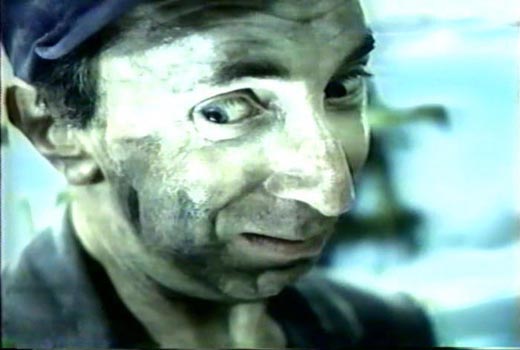

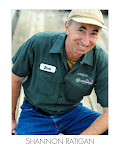

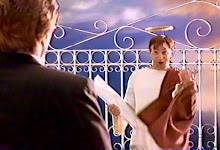.jpg)
.jpg)
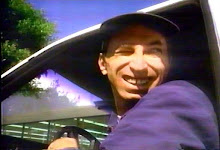.jpg)
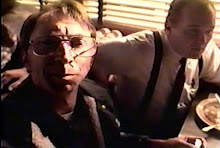.jpg)

.jpg)

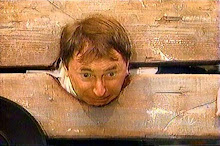.jpg)
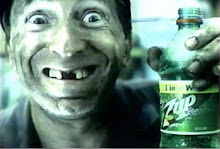.jpg)

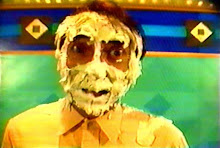.jpg)
.jpg)